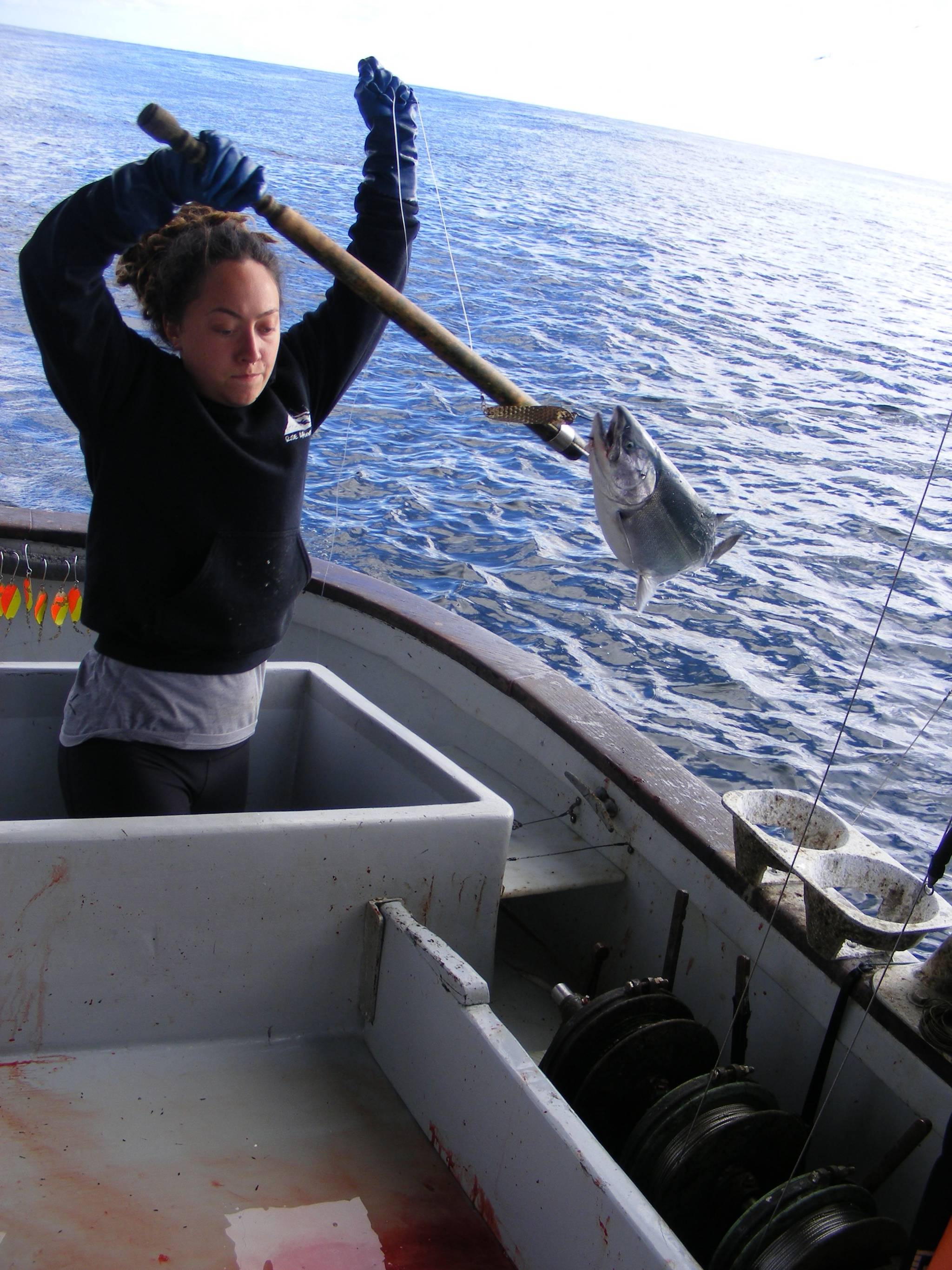A new Southeast Alaska fishing business don’t want mystery surrounding the salmon they sell.
Shoreline Wild Salmon’s three co-owners even play a video outlining the process that brings fish from Alaska’s waters to the Midwest when they’re selling their wares at farmers’ markets or to restaurants and stores.
“We figure the more people know about the product, the more they will want to buy it,” said Joe Emerson, Shoreline Wild Salmon co-owner in an interview. “We want people to know how we caught it. We want people to know it’s a sustainably managed fishery.”
The salmon they sell are caught using hooks and lines, killed using a pressure bleed system, quickly cleaned, placed on ice, unloaded in Pelican and processed next to where they’re unloaded. The salmon are then packed and flown to Juneau, and from the capital city they’re flown by jet to Michigan or Minnesota. Currently, most the fish are destined for the Lower 48.
Some of those fish are caught on Emerson’s boat and some are purchased from other fishermen.
[Divers carve out time to carve underwater pumpkins]
“We buy fish from about six boats,” Emerson said. “Those people all produce really high-quality product, and we pay them more for that product.”
Their salmon business places a premium on quality fish and sustainable fishing practices — Shoreline Wild Salmon targets specific species and each fish is caught and handled individually to limit bycatch. The venture was formed after conversations among Emerson, Heller and co-owner Marie Rose in the winter of 2015 after the three met in Juneau.
Keith Heller and Emerson have decades of experience in the fishing industry, and Emerson has continually fished since 1979. At the time, Rose worked for Heller, who she was introduced to by Emerson. Rose and Emerson knew each other through the conservation-minded campaign Salmon Beyond Borders.
“We started as a company by realizing we wanted to fill this gap of people not having access to high-quality wild Alaskan salmon down south,” Rose said.
The trio settled on Rose’s home state of Michigan as a starting site for their business idea. They shipped salmon to Detroit, where it was sold at farmers’ markets.
Rose said her father still handles Michigan deliveries for the business.
Heller said there seems to be a growing market for wild salmon with a farm-to-table ethos, but there aren’t many sources for it.
“We’re a little bit of a solution business,” Heller said.
To attract attention to the farmers’ market presence, Heller said he and Emerson would play music and hand out a lot of samples.
Three years later, the company sells wild Alaskan salmon to dozens of locations in Michigan and Minnesota, and the businesses’ co-owners said in-roads have mostly been made by in-person meetings.
[Eaglecrest’s new ticketing and tracking system is almost ready for the ski season]
“Some people thought you can’t just walk into grocery stores and ask somebody to buy your fish,” Rose said.
But, Heller and Emerson said that’s often part of what they do.
“We usually try to meet the owners of the stores that we service and all the people that work in the fish department and show them our videos, and explain to them how it’s caught,” Emerson said. “That’s unusually because most of these people have never had the fisherman, the producer, come in and meet them face-to-face.”
Southeast
Shoreline Wild Salmon is now trying to grow its brand within Southeast Alaska.
That will also be a face-to-face effort.
The co-owners will be at Devil’s Club Brewery on Nov. 9 for a pop-up market and have a presence at the annual Public Market slated to start Black Friday, Nov. 29.
While wild, hook-and-line caught salmon are more common in Juneau than in Detroit, but Heller and Emerson said they suspect there could still be a demand.
“If you want to go get it yourself, you can,” Heller said. “Not everybody is in a position to do that.”
• Contact reporter Ben Hohenstatt at (907)523-2243 or bhohenstatt@juneauempire.com. Follow him on Twitter at @BenHohenstatt.

